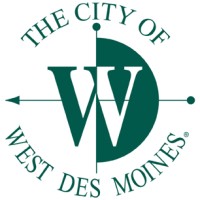2 questions from Envision Iowa Think Tank on business opportunities

As part of Business Publications Corp.’s Envision Iowa Think Tank series, the Business Record spoke Aug. 22 with three experts who work with Iowa manufacturers, entrepreneurs and business owners about business opportunities and innovation in the state.
The panel discussion, focused on what industries are poised for growth, included Mike Ralston, president of the Iowa Association of Business and Industry; Chris Deal, director and mechanical engineer at Modus Engineering; and Jill Wilkins, executive director of New Bohemian Innovation Collaborative (NewBoCo) in Cedar Rapids.
Envision Iowa consists of a three-part virtual Think Tank series, culminating in an in-person event on Oct. 22. Register for the remaining virtual event here.
Here are some key takeaways from our panelists’ responses to two questions asked during the conversation:
What industries do you feel are best positioned to grow in the coming decade?

According to Ralston, revenue for Iowa’s manufacturing businesses aren’t as high as they were in recent years but are “still very strong.” He said 60% of ABI members surveyed in the organization’s quarterly poll indicated they expect to make capital expenditures before the end of the 2024 calendar year.
“That’s another reason we see manufacturing poised for growth – capital expenditures like a plant expansion or a multimillion dollar piece of equipment,” Ralston said. “Folks don’t do that unless they think that business is going to come along with it.”
He said much of the leveling off recorded in the manufacturing sector in recent months is linked to agriculture, specifically lower commodity prices like corn and soybeans. But the ABI president said most economists are forecasting prices to rise in late 2025 or the first quarter 2026.

Wilkins said she’s seeing growth in Iowa’s tech space, notably in expanding access to health care in Iowa through telehealth and edtech, “being able to continue to connect schools through different resource opportunities.”
At NewBoCo, Wilkins said sustainable and regenerative agriculture is also a growing field of interest. “One of our current staff members is really seeing a lot of opportunity, in particular, some work in southeast Iowa. They’re pulling together opportunities for communities to really look at being sustainable,” she said.
Post-pandemic habits are pushing small business start-ups in the service sector, according to Wilkins. “Mobile catering, food trucks, mobile dog grooming, things that make everyday life a little more simple is something that we’re seeing a lot of growth opportunity and interest in,” she said.
Wilkins said using available information to make data-driven decisions while evaluating customer bases for niche business start-ups is trending. “Because they’re able to just have a lot more information there, we’re seeing some of them grow so fast and they’re needing to be able to leverage other resources because of that growth.”

According to Deal, there are opportunities for rural economic growth by embracing technology linked to manufacturing to allow Iowa to compete with some of the more historic, coastal tech regions of the U.S., if people are willing to take on some of the risks. “I think there’s incredible opportunity, if we can get over those two hurdles – the workforce, getting people educated and understanding what opportunities even exist in tech. In many of our rural communities, there’s still this lack of awareness and lack of understanding of where that industry can take you,” Deal said. “We’re overcoming that but there’s still work to go.”
The construction trades are seeing headwinds, Deal said. But he said there are incentives in programs created by the federal Inflation Reduction Act to leverage money for sustainability projects – municipal work with clean water and school projects.
What factors and incentives need to be maintained to keep the state a favorable destination for new and existing business and industries?
According to Ralston, reducing the cost of government and keeping tax policy “fair and predictable” are helpful to business in Iowa. He pointed to the state government’s Iowa Manufacturing 4.0 program as an example, which provides incentives to manufacturers to improve processes, automate and increase efficiencies with a goal to increase productivity.
“And perhaps more importantly, it involves an assessment of their existing operations. That assessment is done by the Center for Industrial Research and Service at Iowa State University. And while we have these great global manufacturers, we’ve got a number of small manufacturers that have really benefited simply from that assessment process and the recommendations that result in allowing them to do process better,” Ralston said.
Wilkins said access to funding is a key factor for businesses that work with NewBoCo. “Certainly private capital resources, having consistent access for businesses to be able to pitch to those potential funders. We have some great partners with that within the state, but if they’re at a point where they aren’t in deployment or have closed a fund, there is a time where there might be a lag of access,” she said.
She wants to be able to grow that funding base, as well as creating more access to smaller amounts of funding for early-stage startups.
Deal, who is based in Jefferson in Greene County, pointed to that area of Iowa as an example of how rural entrepreneurship resulted in “homegrown” manufacturers that 30 to 40 years ago chose to keep their operations local. He said he wants to make sure the next generation of local industry has the opportunity to do the same things.
“Anything we can do to lower the threshold to starting a business and then growing that business, that’s critical for the longevity of our communities,” Deal said.








